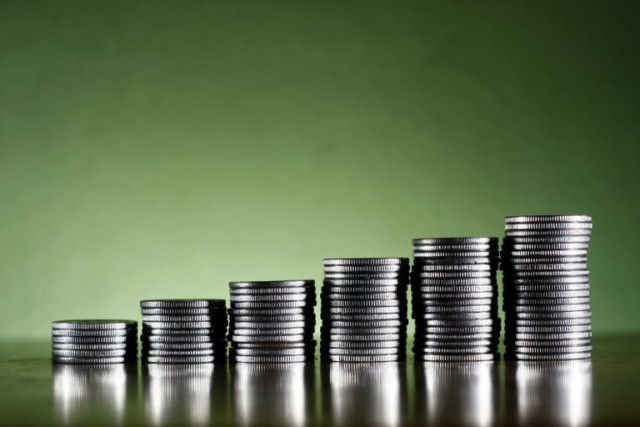Pakistan’s economy enjoying period of optimism: report
The Economist credits PML-N govt for economic stability in the country

The Economist credits PML-N govt for economic stability in the country. STOCK IMAGE
“Those in search of a thriving stock market, a stable currency and low inflation would not normally pitch up in Pakistan. It is more readily thought of as a pit of instability than as a source of opportunity. Yet Pakistan is enjoying a rare period of optimism about its economy,” The Economist said in a recent article about Pakistan’s economy.
The newspaper while highlighting Pakistan’s economic performance said that International Monetary Fund (IMF) reckons that the economy will grow by 4.7% next year, the fastest rate in eight years. Consumer prices rose by 2.5% in the year to March, the smallest increase for more than a decade. Twice already this year the central bank has lowered its benchmark interest rate.
Some indicators are pointing to an upturn in spending. Compared with a year earlier, cement sales, which are a guide to how much construction is taking place, rose by 5.5% from July to March. Car sales rose by 22% over the same period, the paper said.
It added that a fall of two-fifths in the oil price is a huge slice of luck for a country such as Pakistan. It relies on imported fuel oil for two-fifths of its power supply and is prone to periodic balance-of-payments crises. The country’s import bill can easily overwhelm the foreign-exchange earnings from textile exports and the remittances that Pakistanis working in the Middle East and Europe send home.
In 2013-14 Pakistan’s net import bill for oil came to $12.6 billion, or around 5% of GDP. But if oil prices stay low, Pakistan could save a total of $12 billion in the next three years, the paper said quoting the IMF. The money could be spent on things with more local content and give the economy a lift, it added.
It said that the government of Nawaz Sharif takes some credit for the economy’s new stability. It has stuck to an IMF programme agreed to in 2013, a few months after it came to power in Pakistan’s first-ever handover from one civilian government to another. Foreign-exchange reserves have more than doubled, to $17.7 billion.
Electricity tariffs have been raised, and some unpaid bills collected, easing the cash burden on hard-pressed distribution companies. Tax receipts have risen, albeit from pitiful levels, in response to efforts to broaden the base and cut exemptions, the paper said.
The Economist said that the revenue agency has sent over 150,000 tax notices to non-payers. More retailers are being drawn into the indirect-tax net. A draft budget aims to bring the budget deficit below 4% of GDP in 2015-16, from a peak of over 8%.
A privatisation drive that stalled last June resumed in April, when the government sold its stake in Habib Bank for $1 billion. Three-quarters of bids came from foreign investors. Pakistan’s stockmarket has doubled in dollar terms since the start of 2012, thanks in large part to such foreign interest.
The Economist said that the progress in providing economic stability is encouraging. But Pakistan needs sustained growth of 5-7% a year if it is markedly to cut poverty-at the last count, nearly a quarter of Pakistanis were below the poverty line.
Published in The Express Tribune, May 3rd, 2015.



















COMMENTS
Comments are moderated and generally will be posted if they are on-topic and not abusive.
For more information, please see our Comments FAQ